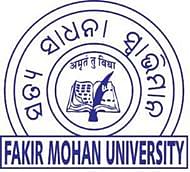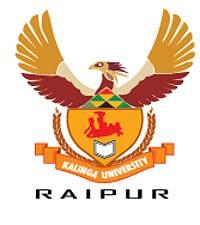Introduction about Ph. D in Organizational
behaviour
A Ph.D. in Organizational Behaviour from the best college is an advanced academic degree program designed for
individuals seeking to explore human behaviour in organizational settings at a
profound level. Organizational Behaviour (OB) is an interdisciplinary field
that combines principles from psychology, sociology, anthropology, management,
and other disciplines to understand individual, group, and organizational
dynamics within workplaces.
The Ph.D. program
in Organizational Behaviour typically offers a rigorous blend of coursework,
research, and practical experience to prepare graduates for careers in
academia, research institutions, consulting firms, government agencies, or the
private sector.
Throughout the
program, students engage in intensive coursework covering topics such as
individual behaviour in organizations, group dynamics, leadership,
organizational culture, organizational change, motivation, decision-making, and
conflict resolution. They also delve into advanced research methodologies,
including qualitative and quantitative research methods, experimental design,
survey research, and data analysis techniques.
A significant
component of a Ph.D. in Organizational Behaviour is the completion of original
research leading to a doctoral dissertation. This research is expected to
contribute new knowledge or insights to the field of organizational behaviour,
often addressing contemporary issues, theoretical debates, or practical
challenges faced by organizations. Doctoral candidates work closely with
faculty advisors and mentors to conceptualize, design, and execute their
research projects, developing expertise in research design, data collection,
analysis, and interpretation.
Graduates of Ph.D.
programs in Organizational Behaviour are equipped with the knowledge, skills,
and tools to analyse and address complex organizational problems, enhance
individual and organizational effectiveness, and foster positive work
environments. They may pursue careers as professors, researchers, or
consultants, where they can contribute to the advancement of knowledge through
teaching, publishing scholarly work, conducting applied research, or providing
advisory services to organizations.
Overall, a Ph.D. in
Organizational Behaviour offers a stimulating and intellectually enriching
academic journey for individuals passionate about understanding human behaviour
in organizations and committed to making meaningful contributions to the field
through research, scholarship, and practice.
What is admission process for Ph. D in
Organizational behaviour?
The admission process for Ph.D. in Organizational Behaviour can vary depending on the
specific program and institution offering the degree. However, here's a general
overview of the typical steps involved in the admission process:
Research Programs: Prospective applicants usually start by
researching Ph.D. programs in Organizational Behaviour offered by various
universities to identify programs that align with their research interests,
career goals, and academic background.
Review Admission Requirements: Applicants should carefully review the
admission requirements and application deadlines for each program they're
interested in. These requirements are usually outlined on the program's website
or in the application instructions.
Prepare Application Materials:
Academic Transcripts: Applicants are required to submit official
transcripts from all previous academic institutions attended, demonstrating
strong academic performance, particularly in relevant coursework such as
psychology, sociology, management, research methods, and statistics.
Standardized Test Scores: Some Ph.D. programs require applicants to
submit scores from standardized tests such as the GRE (Graduate Record
Examination) or GMAT (Graduate Management Admission Test). However, some
programs may waive this requirement or place less emphasis on standardized test
scores.
Letters of Recommendation: Applicants typically need to provide
letters of recommendation from academic or professional references who can
speak to their qualifications, academic abilities, research potential, and
suitability for doctoral studies in Organizational Behaviour.
Statement of Purpose: Applicants are usually required to submit
a statement of purpose or personal statement outlining their academic
background, research interests, career goals, and reasons for pursuing a Ph.D.
in Organizational Behaviour. This is an opportunity for applicants to
articulate their passion for the field and their research agenda.
Resume/CV: A current resume or curriculum vitae (CV) highlighting academic
achievements, research experience, professional experience, publications,
presentations, and relevant skills.
Research Proposal (optional): Some programs may encourage or require
applicants to submit a research proposal outlining their proposed dissertation
topic, research questions, methodology, and expected contributions to the
field.
Submit Application: Applicants must complete and submit the
online application form for the Ph.D. program in Organizational Behaviour,
along with all required supporting documents and application fees, by the
specified deadline.
Interviews (if applicable): Some programs may require or invite
shortlisted candidates for interviews as part of the admissions process. These
interviews provide an opportunity for applicants to discuss their research
interests, academic background, and career aspirations with faculty members or
admissions committees.
Admission Decision: After reviewing all applications and
conducting interviews (if applicable), the admissions committee evaluates each
candidate based on their academic qualifications, research potential, letters
of recommendation, statement of purpose, and other relevant factors. Successful
candidates receive an offer of admission to the Ph.D. program in Organizational
Behavior.
Acceptance and Enrolment: Accepted applicants must formally accept
the offer of admission and complete any additional enrolment requirements
specified by the university or program before the enrolment deadline.
It's important for
prospective applicants to carefully review the admission requirements and
instructions provided by each Ph.D. program they're interested in and to
prepare their application materials thoroughly to increase their chances of
admission. Additionally, reaching out to faculty members or current students in
the program for guidance and advice can be beneficial during the application
process.
What is eligibility for Ph. D in Organizational
behaviour?
The eligibility criteria for Ph.D. in Organizational Behaviour can vary depending on the
specific program and institution offering the degree. However, here are some
common eligibility requirements:
Educational Background: Typically, applicants are required to have
completed a master's degree in organizational behaviour, psychology, sociology,
management, or a related field from an accredited institution. Some programs
may accept applicants with a bachelor's degree, particularly if they
demonstrate exceptional academic performance and relevant research experience.
Minimum GPA: Many Ph.D. programs have a minimum grade
point average (GPA) requirement for previous academic coursework, which is
usually in the range of 3.0 to 3.5 on a 4.0 scale. However, higher GPAs may be
expected for more competitive programs.
Standardized Test Scores: Some Ph.D. programs require applicants to
submit scores from standardized tests such as the GRE (Graduate Record
Examination) or GMAT (Graduate Management Admission Test). However, some
programs may waive this requirement or place less emphasis on standardized test
scores, particularly if applicants have strong academic or professional
backgrounds.
Research Experience: While not always mandatory, having
research experience in organizational behaviour, psychology, sociology, or
related fields can strengthen an applicant's candidacy. This may include
involvement in research projects, publications, conference presentations, or
relevant work experience.
Letters of Recommendation: Applicants are usually required to submit
letters of recommendation from academic or professional references who can
speak to their qualifications, academic abilities, research potential, and
suitability for doctoral studies in Organizational Behaviour.
Statement of Purpose: Applicants typically need to submit a
statement of purpose or personal statement outlining their academic background,
research interests, career goals, and reasons for pursuing a Ph.D. in
Organizational Behaviour. This allows applicants to articulate their passion
for the field and their research agenda.
Interviews (if applicable): Some programs may require or invite
shortlisted candidates for interviews as part of the admissions process. These
interviews provide an opportunity for applicants to discuss their research
interests, academic background, and career aspirations with faculty members or
admissions committees.
It's important for
prospective applicants to carefully review the eligibility criteria and
application requirements of each Ph.D. program they're interested in to ensure
they meet the necessary qualifications before applying. Additionally, reaching
out to faculty members or current students in the program for guidance and
advice can be beneficial during the application process.
What is syllabus for Ph. D in Organizational
behaviour?
The syllabus for Ph.D. in Organizational Behaviour can vary depending on the specific program
and institution offering the degree. However, here's a general overview of the
topics that may be covered in the coursework component of a Ph.D. program in
Organizational Behaviour:
Foundations of Organizational Behaviour: Advanced study of the fundamental
theories, concepts, and models in organizational behaviour, including
individual behaviour, group dynamics, organizational culture, leadership,
motivation, communication, and decision-making.
Research Methods in Organizational
Behaviour: Comprehensive
training in research design, data collection, statistical analysis, and
interpretation of findings in organizational behaviour research, including
qualitative research methods, quantitative research methods, experimental
design, survey research, and archival data analysis.
Advanced Topics in Organizational
Behaviour: In-depth examination
of contemporary issues, emerging trends, and specialized areas within
organizational behaviour, such as diversity and inclusion, organizational
justice, workplace stress, employee well-being, organizational change, and
innovation.
Leadership and Management: Exploration of leadership theories,
leadership styles, leadership development, leadership effectiveness, and the
role of leaders in shaping organizational culture, fostering employee
engagement, and driving organizational change.
Group Dynamics and Team Effectiveness: Analysis of group processes, team
dynamics, team effectiveness, collaborative problem-solving, conflict
resolution, decision-making in teams, virtual teamwork, and cross-cultural team
dynamics.
Organizational Culture and Climate: Study of organizational culture,
organizational climate, cultural diversity, cultural change, and their impact
on employee attitudes, behaviors, and organizational outcomes.
Organizational Change and Development: Examination of theories and models of
organizational change, change management strategies, resistance to change,
organizational development interventions, and organizational learning
processes.
Employee Engagement and Well-being: Investigation of factors influencing
employee engagement, job satisfaction, work-life balance, stress management,
burnout prevention, employee wellness programs, and their implications for
organizational performance.
Workplace Diversity and Inclusion: Analysis of diversity management
strategies, inclusion practices, equal employment opportunity laws, implicit
bias, stereotype threat, microaggressions, and their effects on employee
experiences and organizational outcomes.
Ethical and Social Responsibility in
Organizations: Exploration of
ethical dilemmas, ethical decision-making processes, corporate social
responsibility (CSR), sustainability practices, ethical leadership, and ethical
climates in organizations.
Seminar Series in Organizational
Behaviour: Specialized
seminars, workshops, or colloquia featuring presentations by faculty members,
guest speakers, or doctoral students on cutting-edge research, current debates,
and methodological innovations in organizational behavior.
Dissertation Research: Independent research leading to the
completion of a doctoral dissertation under the supervision of a faculty
advisor, involving the development of a research question, literature review,
data collection and analysis, and presentation of findings.
It's important to
note that the syllabus for a Ph.D. program in Organizational Behavior may
evolve over time to reflect advancements in the field and the specific
expertise of faculty members. Additionally, students may have the opportunity
to tailor their coursework and research interests to align with their career
goals and academic interests.












